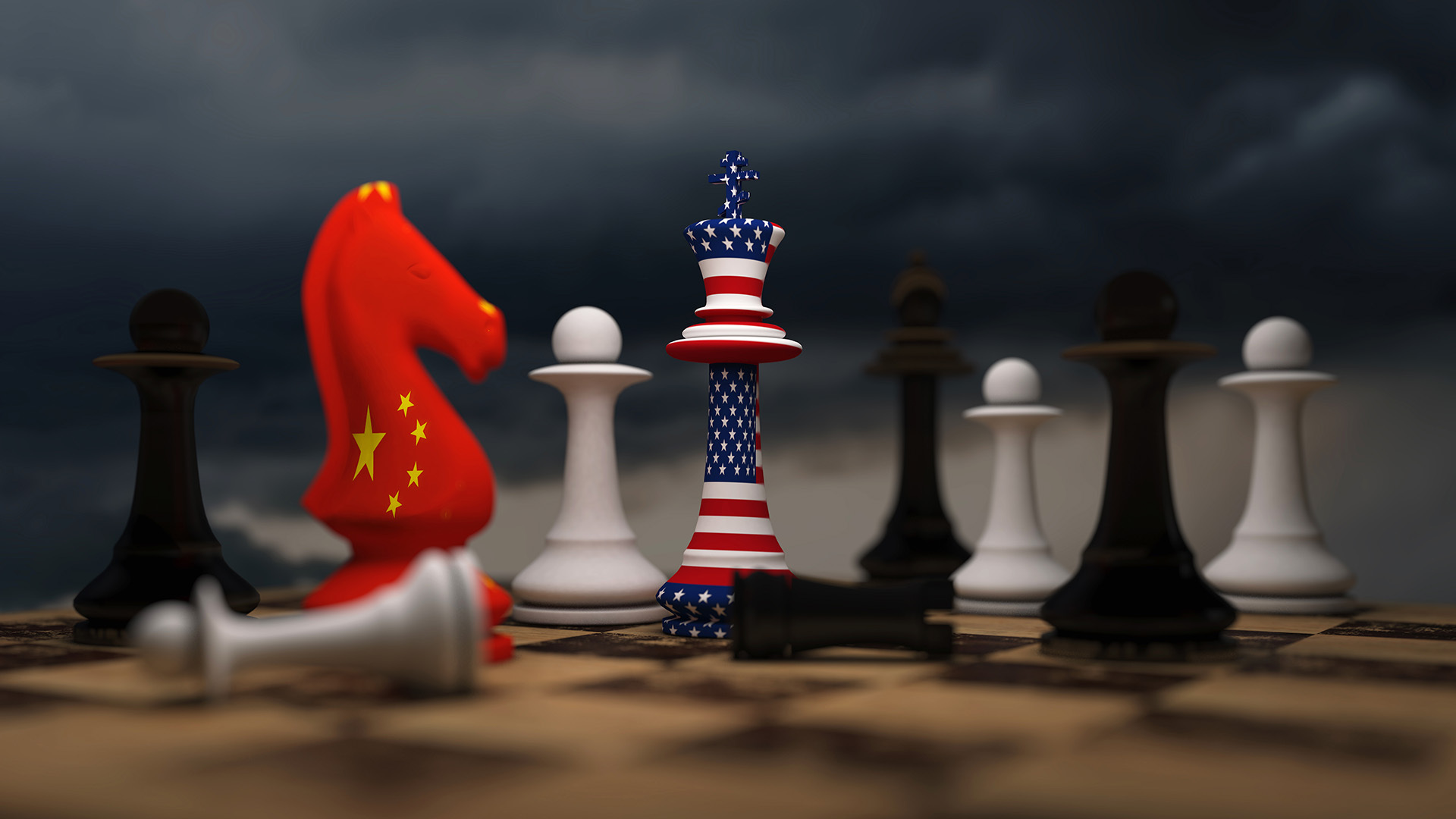
Simone Del Rosario:
It’s like waiting for the other shoe to drop. China has yet to retaliate for the US passing legislation that either bans or forces the sale of TikTok.
But history tells us – something is coming. And so does the Chinese government.
Chinese Foreign Ministry spokesperson Lin Jian:
If the United States persists, China will take resolute and forceful measures to firmly defend its sovereignty, security and development interests.
Doug Guthrie:
It’s playing its cards very carefully in a geopolitical chess game. My name’s Doug Guthrie. I’m a professor of global leadership at the Thunderbird School of Global Management. I’m also the executive director of China Initiatives here.
Simone Del Rosario:
Doug Guthrie used to work for Apple in Shanghai, helping executives understand how to navigate Xi Jinping’s leadership.
Doug Guthrie:
I do think that there are people at high levels of the government who are watching very carefully and thinking very carefully about how far the US is pushing the negative narrative about about China as sort of a nefarious controller and spreader of false information.
Simone Del Rosario:
Guthrie expects China’s next move to be a strategic one.
Doug Guthrie:
Imagining getting into sort of micro-level tit-for-tat stuff, I just, I’m skeptical of it. What I think is there’s a much bigger chess game that’s going on, and yes, sometimes signals are going to be sent out saying, like, you know, we can control the ways in which iPhones are sold and are popular.
Simone Del Rosario:
Apple took a hit in China – and its stock price – when China banned government officials from bringing iPhones to work last year. The move didn’t just limit Apple’s appeal to government officials, it sent a chilling message to Chinese consumers.
The biggest beneficiary might be Chinese smartphone maker Huawei, whose market share in the country soared at the same time. Guthrie says Apple is collateral damage in this technological cold war between the U.S. and China, where both countries play the national security card.
See, China’s iPhone ban came to light several months after the U.S. banned the sale of tech from China’s Huawei and ZTE. The Federal Communications Commission said it was to protect the American people from national security threats involving telecommunications. Later, the U.S. Department of Commerce banned American companies from selling advanced AI chips to China.
Doug Guthrie:
The idea that we can blame China for controlling information or watching information or acting in an authoritarian way, and then we make these decisions that are tied directly to Huawei or directly to ByteDance and sort of act in our own authoritarian way, I think we lose stature, not just in China, but in the world.
Simone Del Rosario:
Guthrie says America’s latest chess move with TikTok goes a step beyond China’s usual playbook.
For years, some American companies have bent over backward to continue doing business under Xi’s authoritarian rule, caving to demands on data control and censorship. Others, like Yahoo and LinkedIn, opted to leave, citing a challenging business environment, while China’s Great Firewall blocks internet users from accessing the likes of Google and Facebook.
Doug Guthrie:
It’s absolutely the case that the Chinese government has put a stake in the sand and said you cannot cross over this line, and if you do, you’re not allowed to be here.
Simone Del Rosario:
But has China had the gall to tell an American company you have to sell or else you can’t have access to our market?
Doug Guthrie:
No, no. I mean, I think it, it is, I like the word gall, and I think it’s just so much arrogance in the US approach to things.
Simone Del Rosario:
For its part, Guthrie doubts ByteDance would cave to America’s demands. Given the two TikTok options – sell or be banned – he said ByteDance is more likely to choose the latter.
Doug Guthrie:
They’d rather it not happen. And I think there will be a negotiated outcome, but I am very skeptical of the idea that ByteDance will just bow to the United States government and sell Tiktok. I just don’t think it’s going to happen.
Simone Del Rosario:
And TikTok says it’s not going anywhere.







